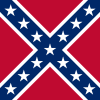

| Online: | |
| Visits: | |
| Stories: |

| Story Views | |
| Now: | |
| Last Hour: | |
| Last 24 Hours: | |
| Total: | |
From Puritan To Yankee
Editor’s Note: I hope you are enjoying history sperging Saturday. This is a brief respite from our tedious chronicling of current events.
In light of everything I know about American history, I was skeptical of the Louis Hartz thesis that “America was always Lockean.” The Puritan founders of New England were not Lockeans. They had come to the New World to create a Calvinist religious utopia.
It wasn’t until the third or fourth generation that the Puritan became the Yankee:
“Finally, this new “organization of family life contributed to the emergence of the liberated individual, a person who was exempt from all except voluntary ties to the family of his birth and free to achieve his own goals.”
By further undermining the coercive power of the old socioreligious regime that the founders of the orthodox puritan colonies had set out to implement and thereby opening up New England society, increasing population growth and the changing character of religious, economic, social, and familial life provided, as Richard L. Bushman has argued, the necessary preconditions for nothing less than a behavioral revolution that stretched over and had a transforming effect on all but the least dynamic areas of the region. Far from merely playing a passive role, people became active agents in this process. Increasingly ignoring traditional ideological and social restraints, they turned energies formerly devoted to religious and community endeavors to their own private pursuits of personal and individual happiness.
By encouraging a considerable amount of autonomous and aggressively competitive behavior, this behavioral revolution also provided identity models and standards of personal conduct for the society at large that stood at marked variance with the original values of the leaders of the founding generation. No longer was the moral and psychological necessity of obedience to the authority of the community and its traditional leaders – magistrates, pastors, and fathers – automatically assumed. Rather, contemporary models of behavior emphasized the authority of self rather than of the community; individual economic achievement and success rather than ascriptive criteria for political leadership and social status; the fulfillment, privacy, and comfort of the individual rather than self-denial in favor of the common good; and the “capacity of the individual to direct his own existence rather than … an unquestioning response to public morality.” With this behavioral revolution, the pursuit of wealth and gentility became as important as the pursuit of salvation and even more important than the pursuit of consensus and community …”
Full stop. There is a lot to unpack here:
1.) First, New England wasn’t founded as a Lockean settlement. Plymouth was founded by the Pilgrims in 1620. Massachusetts Bay was founded by Puritans in 1630. John Locke was born in 1632 and his Two Treatises on Government weren’t printed in Boston until 1773.
2.) Second, the early history of Massachusetts doesn’t at all resemble Lockean liberalism. Massachusetts was a Congregationalist theocracy. Religious tolerance was imposed on Massachusetts by King Charles II when it became a crown colony and was merged into the Dominion of New England. This was unpopular with the Puritans of Massachusetts, who rose in rebellion, and the Dominion of New England was dissolved after King Charles II was overthrown in the Glorious Revolution.
3.) Third, the Puritan only became the Yankee in the third or fourth generation, and this was the result of a number of trends in early 18th century New England: the growth in the population, the expansion of capitalism, economic stratification, the rise of individualism, the decline in religious and parental authority and the “New Light” theology that following the Great Awakening of the 1740s.
In other words, Yankee liberalism is based on a big lie. There was never a “social contract” in which autonomous individuals left a “state of nature” to “enter society.” Instead, there was a Puritan religious covenant that had created a highly religious, egalitarian collectivist society. After three or four generations, the Puritan’s corporate society disintegrated and became much more individualistic. It was swept by a religious revival in the Great Awakening and on the eve of the American Revolution latched on to Locke’s theories as a rationalization for its own rebellion.
The key here is that this was an organic process. New England had experienced tremendous change social and economic change in the 18th century when the Puritan became the Yankee. The social order had never been based on abstract universal theories of “liberty” and “equality.”
Note: Richard L. Bushman has a book called From Puritan To Yankee: Character and the Social Order in Connecticut, 1690–1765. The excerpt above also comes from Jack P. Greene’s Pursuits of Happiness: The Social Development of Early Modern British Colonies and the Formation of American Culture.
Source: http://www.occidentaldissent.com/2017/03/26/from-puritan-to-yankee/


